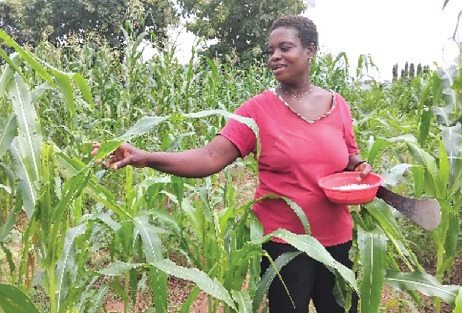The government-backed celebration of 2024 National Farmers Day recently ended with an impressive climax in Accra.
The annual event is highly commendable because food plays an important role in our daily lives.
Farmers are immeasurably contributing to agricultural GDP, employment and chocolate trade. However, evidence clearly shows that most farmers are not safe, secure or happy due to worsening food system risks, shocks and crises.
This text highlights the preliminary results from a pilot research commissioned by the Accelerator for Systemic Risk Assessment (ASRA) into Agrifood System Risks in the Volta River Basin.
ASRA is an independent non-profit initiative hosted by the United Nations Foundation, on a mission to mainstream Systemic Risk Assessment (SRA) in policies and decisions in response to current and future challenges.
The results show that the majority of smallholder farmers in the river basin are threatened by systemic risks, including climate change, agrobiodiversity loss, pollution, and input subsidy removals that demand urgent policy responses.
Rising food system risks
With the existing social deprivation and acute poverty in certain savanna communities, as high as 80 per cent, an abrupt occurrence of climate-induced floods, sea level rises or droughts tend to force masses living on $1.25 into devastating socio-economic conditions.
![]()
Some farm produce on display
How the debt-risk cycle and climate extremes interact to affect poor farmers was practically demonstrated in the West Mamprusi, Anloga, East Gonja, Central Gonja, South Tongu districts, and the Pru East, Kpando and Krachi East municipalities.
Mr Mahama Sulemana, a victim of severe droughts recounted that “the right time farmers want rainfall it does not happen. It is only when the crops fail before it rains.
“For example, this year there was insufficient rainfall. Together with my wife, we cultivated 4ha of maize and 1ha of soya beans, but all the maize plants wilted due to a sudden onset of heatwaves.
I might harvest less than two 50kg bags of maize or nothing,” he said.
Like most farmers, Mr Sulemana incurred a debt of over GH¢11,800.00. Another experience from Anloga substantiates a rising farmers’ debt crisis: “I do not have a vehicle to convey my tomatoes to the market.
I borrowed money to prepare the plots, buy agrochemicals and pay labourers. Other growers and I have not been sleeping these days as we could not transport our tomatoes to market for sale.”
Systemic risks trigger debt-justice
Recurring crop losses have damaged the trust of loan repayments, mesmerising rural farmers in debt. Today, many farmers are living insecure lives, emotionally depressed, and prone to soaring food prices.
For 90 per cent of the smallholders, everyday choices considerably depend on their food crops – whether to treat headaches and stomach ills, earn incomes, pursue education or eat balanced diets.
Once crops or livestock are destroyed, polycrises of anxiety, hunger and debts converge and cascade to deny farmers sustainable living.
It is imperative to give critical attention to the associated polycrisis, especially the alarming near-debt-suicide circumstances.
Although the unwanted debts and food crises hitting farmers in the northern savannas are similar to those in the coastal communities, the complex risk features are not the same, necessitating SRA.
The application of SRA is rapidly gaining scientific traction, since assessing individual risks separately no longer works, instead adopting comprehensive multi-scale means that consider ways risks relate across (inter-)systems.
Collaborating for solutions
Obviously, systemic risks have triggered a strong concern for debt justice and the Right to Food. Empowering farmers to get liberated from debt, rebuild climate resilience or secure food justice requires collective risk response solutions, including quality indigenous seeds or compassion-driven microloans.
But to stop the vicious debt cycle and food shortage, a whole-system diagnosis of risk drivers, barriers and stressors in agrifood systems is needed to reconceptualise and co-design appropriate responses.
This is why the SRA framework encourages new collaborations among government agencies, universities, NGOs, CSOs, donors, media activists and other stakeholders.
Systemic risk responses should draw from collaboration in crucial system areas of sustainable finance, mobility, energy, technological innovation and governance if the interconnected food system risks are to be addressed from multidimensional angles.
Systemic risk thinking, in both assessment and response design and implementation, offers a real opportunity to radically rethink and realign risk mitigation measures to sustainably transform agri-food systems to bring hope to food tables.
The writer is a Research Fellow,
Earth System Governance Project,
Utrecht University/ASRA Network Member
E-mail: doesylvan@yahoo.com

